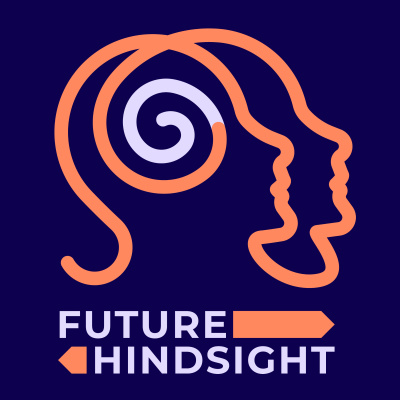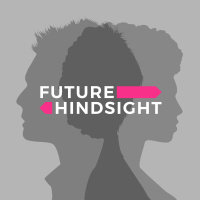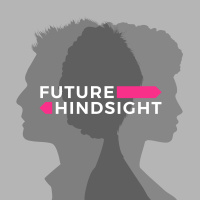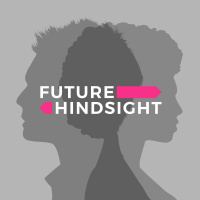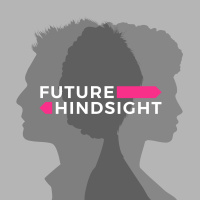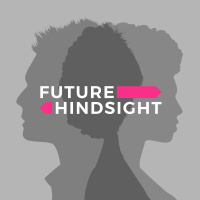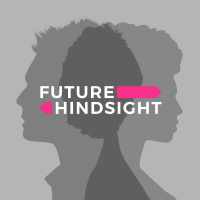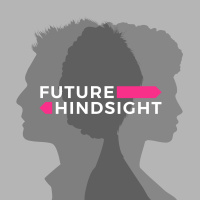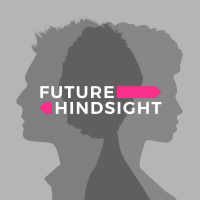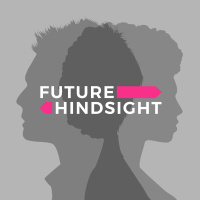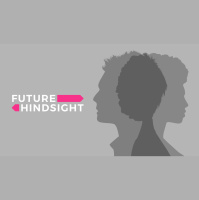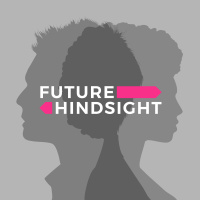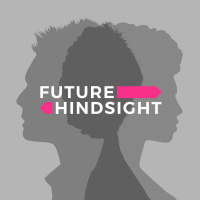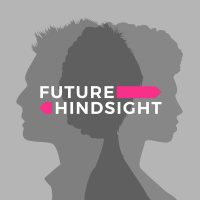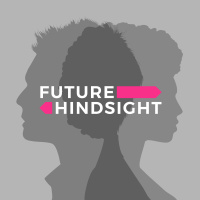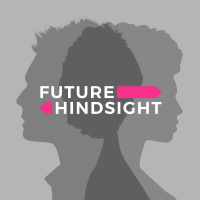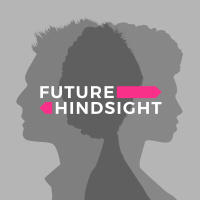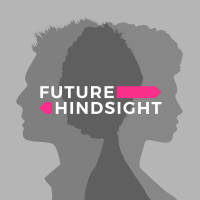Synopsis
Exploring the intersection of civic engagement and civil discourse.
Episodes
-
Ending Urban Violence: Thomas Abt
18/01/2020 Duration: 31minFocus on Violence First Abt’s central thesis for solving violence in urban areas is fairly straightforward: focus on the violence—and not other factors—first. Exposure to violence may be the central mechanism that keeps poor children poor because it inhibits their ability to escape poverty. Violence occupies the brain with lifelong repercussions. Studies have shown elevated rates of cancer, heart disease, and other illnesses based on childhood trauma. Trauma also impacts the ability to sleep, focus, and behave, all of which impact academic and job performances. By reducing violence first, we can provide a measure of safety and stability, which makes it easier to improve education, health outcomes, and attract business investments in a community. Focused, Balanced, and Fair Successful urban violence reduction efforts need to be focused, balanced, and fair. Urban crime “sticks” to certain locations, such as a liquor store or a gas station; certain high-risk individuals; and certain behaviors, such as the illega
-
The Meritocracy Trap: Daniel Markovits
11/01/2020 Duration: 39minThe Cost of Human Capital Meritocracy gives the illusion that we are all equally competing at a level playing field. The reality is that the elite is able to purchase better education, which means they are more qualified when it comes to college admissions and high-income jobs. By heavily investing in education and training, elites build human capital within themselves. They become superordinate workers who are paid enormous wages. The flip side is that human capital enslaves us because we have to yield intensive and alienated labor. In order to maintain status in the elite and reap the benefits of the capital invested in them, meritocrats must work continuously at the highest paying jobs they can find. A member of the elite works punishingly long hours under intense pressure. While meritocracy allows some to become extremely wealthy, they do so at the cost of their own freedom, and ultimately their own happiness. Meritocracy Erodes Democracy Meritocracy erodes democracy in two key ways. First, meritocracy fr
-
Bipartisan Civil Discourse: Michael Baranowski
04/01/2020 Duration: 31minAgreeing on the basic fundamentals The need for positive, bipartisan discourse is acute. In today’s politically charged environment, it's important to disagree in a constructive and civil way. The first step in good-faith dialogue is to start by finding fundamental policies or values you both agree on and build on them. In fact, most Americans hold the same ideals, but value them differently. Mike and his conservative co-host Jay both value justice and freedom, though to different degrees. Since they both agree justice and freedom are important, fair and rational debate becomes much easier. Equally important are the ability to keep an open mind, and to be able to see and understand other perspectives. The System is Working The Trump Administration is undeniably attacking institutions in a way that we’ve never seen from the executive branch before. While this is deeply worrying, the good news is that our system appears to be bearing the brunt of his attacks well. For instance, the election process worked in 20
-
Protecting Free Speech: Suzanne Nossel
28/12/2019 Duration: 32minThe First Amendment The First Amendment protects four types of freedom of expression: freedom of speech, belief, assembly, and the ability to petition the government for a redress of grievances. It states that “Congress shall make no law” to infringe on these four freedoms. Over time, “Congress” has been extended to include the executive branch, as well as state and local governments. The court’s view of the First Amendment is extremely broad, which means that America protects more speech than any other country in the world. Defamation, harassment, and speech that incites imminent violence are the only kinds of speech that are not protected. The First Amendment also does not extend to private institutions such as universities or companies like Facebook. Undermining the Press The President is allowed to say whatever he wants about the press as a private citizen because of his First Amendment protections. However, the President cannot use the power of the federal government to exact reprisals against the press.
-
Practical Equality: Robert L. Tsai
21/12/2019 Duration: 28minLaw as a Framework Equality creates a framework for how we should treat others, and how we should expect to be treated by others. The institution of laws enforces the rules of equality within that framework. Law helps shape the conversations in public life and in politics about what can, and cannot, be done when dealing with more abstract concepts like fairness, freedom, and equality. Law also acts as dispute resolution when we see our intangible values being infringed upon. It helps create compromises and resolutions to problems that arise from differing values, viewpoints, and ideologies. When the Law Fails Law can fail when judges fail to empathize with someone’s complaint about equality, such as in the case of Plessy v. Ferguson. Judges struck down a complaint because they thought the plaintiff was imagining his own discrimination. Their failure was one of empathy, but the legacy was one of racism and segregation. Law also fails when judges ratify policies that make broad judgements about social or racial
-
Deliberative Democracy: Jane Suiter and David Farrell of the Irish Citizens’ Assembly
14/12/2019 Duration: 30minCitizens’ forum The Irish Citizens’ Assembly was formed in response to the severe social and economic crisis caused by the global financial meltdown of 2008. A group of political scientists, led by Jane Suiter and David Farrell, advocated for citizens to be included in debates about the necessary political reforms to address the failures of the executive. Deliberative mini publics innovate democracy by engaging citizens in constructive dialogue about the issues facing society. While many in parliament assumed citizens would always favor more spending and lower taxes, it turned out that voters who were presented with detailed information came to develop nuanced policy positions. After listening to presentations by experts, they actually favored higher taxes in certain areas and reached complex compromises about government spending. By doing so, they proved to lawmakers and skeptics that ordinary Irish citizens could be trusted with vital policy work. The case of abortion rights The first Citizens’ Assembly con
-
Responsible Statecraft: Stephen Wertheim
07/12/2019 Duration: 27minResponsible Statecraft Responsible statecraft should derive from serious consideration of the public interest, with robust public debate and a strong role for Congress. The Quincy Institute believes that democratizing US foreign policy to include diverse points of view from minority, immigrant, and outsider communities – in addition to foreign policy experts – will lead to more vigorous diplomacy and less military intervention. Responsible statecraft would also require Congress to take its war-making responsibility back from the Executive Branch. US foreign policy should engage the world with peaceful discourse. Military Hegemony In the aftermath of the Second World War, the US and the Soviet Union embarked on a decades-long arms race. During this time, the American military-industrial complex grew to become a vital tool of national security. When the USSR collapsed, the US became the world’s only superpower. In order to secure unipolar primacy, America pursued greater military hegemony and dominance over pot
-
Keeping Government Accountable: David Greising
30/11/2019 Duration: 26minInvestigations Get Results Since 1957, BGA investigations have uncovered corruption and unfair practices throughout Chicago and the state of Illinois. A recent investigation of police shootings in predominantly African-American neighborhoods of Cook County found that of 113 shootings over seven years, none led to disciplinary action. After the findings were published, a state law was enacted requiring an investigation each time a police officer discharges their weapon. BGA also investigated and exposed the corruption of Alderman Burke in the 14th Ward of Chicago, who is now under federal indictment on multiple charges. When governments are faced with evidence of corruption they must — and usually do — act quickly to correct it. Good governance Advocacy for good governance goes well beyond exposing corruption. The BGA’s policy team recommends public policies for more transparency, accountability, and efficiency. Marie Dillon, the Policy Director, participated in the mayoral transition to help newly elected May
-
Powering American Democracy: Seth Flaxman
23/11/2019 Duration: 27minTechnology for Democracy Democracy Works remedies some of the most pervasive and mundane reasons we don’t vote. TurboVote is a tool that enables online voter registration, sends out election day reminders, and even provides absentee ballots. Those mailed-in ballots are then tracked by the Ballot Scout initiative. The Voting Information Project produces the polling place and ballot data that is then used by Google and get-out-the-vote drives. By using current technology to take the hassle of voting out of our busy lives, the initiatives of Democracy Works are building a more engaged society. Partnering for Success Democracy Works collaborates with voters, state partners, and corporations to create more successful elections. Since being founded in 2012, TurboVote has registered over 7 million new voters, with 2.5 million in 2018 alone. Moreover, 63% of them were millennials or younger. Successful voter registration came through heavy reliance on partnerships, including with over 130 universities and Snapchat. W
-
Protecting our Elections: Marcia Johnson-Blanco
16/11/2019 Duration: 27minProtecting our Elections Most Americans take for granted that our elections will be free and fair. However, this would not be the case without the rigorous efforts of dedicated non-profits, citizens, and volunteers. Organizations like the Lawyers’ Committee work year-round to protect our elections from internal interference using a variety of tools such as a voter hotline (866-OUR-VOTE), digital outreach, physical field programs, and litigation when states enact unfair or discriminatory voting practices. Legitimate elections are the result of passionate citizens and organized civic engagement. Attacks on Democratic Infrastructure The Lawyers’ Committee started its Election Protection program in 2002 in order to combat increasing attacks on election infrastructure at national and state levels. The most notable of these attacks was the 2013 Shelby County v. Holder Supreme Court Case, which struck down a key portion of the Voting Rights Act that had required districts with a history of voter discrimination to se
-
Podcasting for Democracy: Civics 101
09/11/2019 Duration: 28minCivic education for all Many Americans are unsure of how their government works. Civic education is the manual for democracy, and Civics 101 offers it in the form of a popular podcast. Civic learning is a unifier that promotes democratic ideas and a more connected populace. In fact, listeners of the podcast span across the ideological spectrum, equally motivated to learn all about how they can utilize our democracy. Civics 101 also produces classroom materials for a growing number of high schools around the country. Lasting legacy of slavery The institution of slavery and the needs of slaveholding states were given weighty consideration in the founding days of the nation and were, therefore, baked into the Constitution. One important holdover is the Electoral College, which was originally designed to grant outsized electoral power to slaveholding states. The system continues to give about one third of American voters an advantage at the expense of the majority. Empowering citizens The United States became mor
-
Reimagining Civic Learning: Louise Dubé
02/11/2019 Duration: 28minHigh-quality civic education Supreme Court Justice Sandra Day O’Connor founded iCivics in 2009 because she believed that the practice of democracy must be taught and learned anew by each generation. High-quality civic education starts at an early age and teaches how the US system works. The curriculum includes the basics, such as the Constitution and the Bill of Rights; how to think about the complex challenges that face any government by examining past Supreme Court cases; fostering well-informed, civil discourse with people of differing viewpoints; and teaching media literacy. Educating and empowering future engaged citizens about why their vote matters, what their government does, and how they can enact change is the foundation for a strong democracy. Educational Gaming The series of innovative iCivics games and supporting classroom resources make the complex legislative, judicial, and electoral systems come to life. Civic knowledge is taught through active learning instead of through writing answers on wo
-
Of the People, By the People: Mila Atmos
26/10/2019 Duration: 10minWe Are Our Government In our representative democracy, every citizen of the United States is ultimately a part of the government. One of our civic responsibilities is to be informed about how our elected representatives are working for us and how our tax dollars are being spent. We have the power to hold our representatives accountable when there is corruption or injustice. Our government is of the people, by the people, and we must participate in our society through civic engagement, community activism, or even running for office. Find out more: Mila Atmos is the founder, host, and executive producer of Future Hindsight. She seeks to promote civic values and social engagement through thought-provoking interviews with citizen changemakers. Previous guests include presidential candidate Beto O’Rourke, Eurasia Group founder Ian Bremmer, Indivisible co-founder Ezra Levin, and Robin Steinberg, founder and CEO of The Bail Project. You can follow her on Twitter @milaatmos Myriam Zümbuhl serves as Future Hindsight
-
The Sustaining Power of Passion: Mila Atmos
19/10/2019 Duration: 05minPassion Informs Engagement Creating a stronger community and society comes through a continuous commitment to civic engagement. Passion about certain issues can motivate and sustain a lifetime habit of being involved. In addition, participating in community life and initiatives are essential for staying engaged. Working together and joining forces with other people yields the best results to shape a society that reflects our values. It is one of the most treasured gifts we can leave to future generations. Find out more: Mila Atmos is the founder, host, and executive producer of Future Hindsight. She seeks to promote civic values and social engagement through thought-provoking interviews with citizen changemakers. Previous guests include presidential candidate Beto O’Rourke, Eurasia Group founder Ian Bremmer, Indivisible co-founder Ezra Levin, and Robin Steinberg, founder and CEO of The Bail Project. You can follow her on Twitter @milaatmos Myriam Zümbuhl serves as Future Hindsight’s associate producer. A ve
-
The Three Dimensions of Freedom: Billy Bragg
12/10/2019 Duration: 43minLoss of Agency One of the most important factors in a healthy democracy is the sense of agency. When citizens in a democracy feel they have some agency over their lives, whether it is economic, social, or political, they will work together to create a better future for themselves, their families, and their society. When this sense is taken from them by outside variables such as market forces, they lose this sense of collectivism, and become less likely to work together. This division leaves an opening for bad-faith actors and aggressive populism to take hold in otherwise stable democracies. The Three Dimensions of Freedom There are three ideas that bind and define a successful democracy. They are liberty, equality, and accountability. While liberty is the end-goal of modern democracy, it needs to be acted upon and bolstered by equality and accountability. If a democracy has liberty but not equality, that liberty is little more than privilege. Further, if a democracy has liberty but not accountability, that li
-
The Power of Civic Engagement: Mila Atmos
04/10/2019 Duration: 06minEngagement and Representation There are a multitude of ways to become an engaged citizen. Often people think of civic engagement as an overwhelming and high-level concept. In reality, civic engagement can be performed on any level, from lowering the speed limit on your street and participating in a protest, to joining a local advisory council or parent-teacher organization. The important part of civic engagement is not what we do, but that we actually do something to make our voices heard. We can only be represented when we are engaged in our democracy. Find out more: Mila Atmos is the founder, host, and executive producer of Future Hindsight. She seeks to promote civic values and social engagement through thought-provoking interviews with citizen changemakers. Previous guests include presidential candidate Beto O’Rourke, Eurasia Group founder Ian Bremmer, Indivisible co-founder Ezra Levin, and Robin Steinberg, founder and CEO of The Bail Project. You can follow her on Twitter @milaatmos Myriam Zümbuhl serv
-
The Time for Civic Engagement is Now: Mila Atmos
28/09/2019 Duration: 06minSince the 2016 election, it has become increasingly imperative that we participate in our democracy as citizens. There are many ways to be civically engaged beyond voting and running for office, from being mindful about civic actions to passionately advocating for an issue. Our society and our social contract are only as strong as those participating in them, and the more you can get involved —- and inspire others to do the same -— the more our democracy represents us. Find out more: Mila Atmos is the founder, host, and executive producer of Future Hindsight. She seeks to promote civic values and social engagement through thought-provoking interviews with citizen changemakers. Previous guests include presidential candidate Beto O’Rourke, Eurasia Group founder Ian Bremmer, Indivisible co-founder Ezra Levin, and Robin Steinberg, founder and CEO of The Bail Project. You can follow her on Twitter @milaatmos Myriam Zümbuhl serves as Future Hindsight’s associate producer. A veteran reporter and producer at Swiss
-
The Blueprint for American Democracy: Ezra Levin
14/09/2019 Duration: 32minDemocracy Reform When American democracy was conceived, the US was comprised of 13 states on the Eastern Seaboard, with a population of just over 2.5 million. The 18th and 19th century version of our democracy was meant for a smaller, less populous, and overwhelmingly whiter nation than the America we live in today. In order to preserve and strengthen our democracy for the future, we must engage in progressive reforms. One example is removing outdated and arbitrary procedures like the filibuster, which enables a slim minority to hold up meaningful policy changes for all. Grassroots Organizing is Key Representative democracy ultimately means governmental power is held by the people, not just those elected to represent them. The most effective way to get your voice heard is to organize like-minded individuals, or join groups that share your values, and set out to make a difference on national, regional, or local issues. When many voices join together to demand change, it’s often impossible to ignore. Organized,
-
The Ethics of Big Data: Matthew L. Jones
07/09/2019 Duration: 38minFourth Amendment The Fourth amendment protects people from unlawful searches and seizures. For example, in the 1970s the Supreme Court ruled that a warrant is necessary in order to listen in on telephone conversations, but not to collect the phone numbers. This is the precedent that allows for big data to collect a vast amount of information about people on the internet. Further, the Foreign Intelligence Surveillance Court has determined that the legal analysis for the Fourth amendment is the same, whether the right is applied to millions of people or to just one. Data privacy and literacy The issue with collecting data at scale is that it becomes granular and social. At that point, the data is no longer innocuous but is invasive of privacy. It turns out that our every-day seemingly trivial interactions matter profoundly in the aggregate, and our habit of almost blindly agreeing to arcane privacy policies on the internet is misguided. We need newer forms of transparency that really tell us how the data is bei
-
Achieving Tolerable Climate: Jonathan Lamontagne
31/08/2019 Duration: 25minTolerable climate and economic conditions Lamontagne’s study defines tolerable economic conditions as follows: the present value of abatement costs would not exceed 3% of gross world product and climate damages would not exceed 2% of gross world product. Current gross world product is estimated to be$80trillion, so 3% of that would be $2.4 trillion. Although this a large dollar amount, it would be a reasonable investment as a percentage of gross world product. Tolerable climate is defined as limiting warming by 2 degrees Celsius by 2100. Robust Abatement Abatement costs that range between 3% and 5% of global world product would be considered both aggressive and yet also uncertain in terms of limiting warming. However, because not taking action guarantees failure, immediate action is the best shot at having a tolerable future. The cost of alternative energy sources and how quickly abatement efforts take placewill determine the eventual, actual cost. In addition, actions that are important for the climate in
